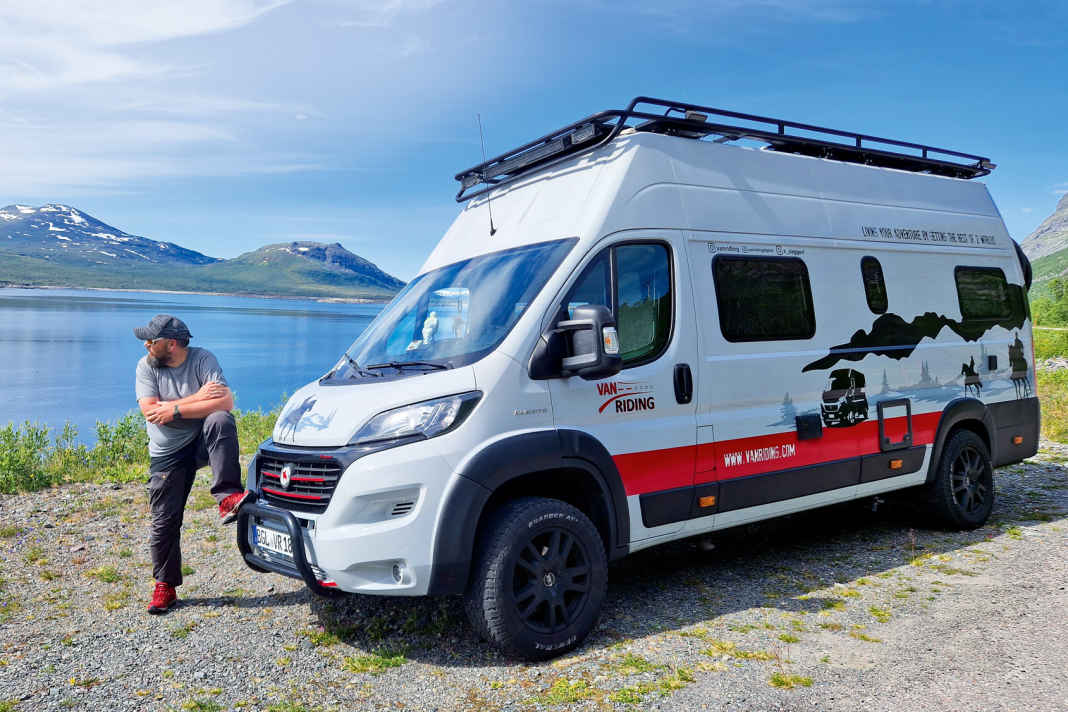Everyone is talking about sustainability and the 2024 trend is also very present among campers. But how do you holiday "properly" if you don't want to live today at the expense of tomorrow? Yes, the inhibition threshold is usually high, as many holidaymakers want to do everything right when tackling the topic. But here are some simple tips that anyone can implement and that can lead to big changes in small steps. Ela and Oli spend around a quarter of the year on their bikes - whether on holiday, on a business trip or at the next camping fair. Their speciality: the idea of sustainability is at the heart of all their trips, alongside adventure. Under @vanriding they record their experiences on Instagram and give followers an insight into their lives.
Looking back two generations
If you want to tackle the topic of sustainability in general, you quickly reach your limits. There are too many points to consider, too many obstacles in the way. But there is a much simpler way to approach the topic. After all, the start towards sustainability is really quite simple, as camper Ela is sure of: "I grew up like this. Sustainability is not a trend for me. My grandma set an example. In the end, I simply applied it to the camper and our lives." So you learn a lot about sustainability when you look back two generations: Because even grandparents and great-grandparents lived with and from nature. They knew which vegetables were available at what time of year and were able to source regional produce. This is still possible today and when camping anyway.
Enjoy regionally, save petrol
Humans are creatures of habit. We have our favourite food, favourite drinks, favourite brand of beer - and preferably always plenty of them. But if you take a lot from home with you, you not only have a lot of baggage and use more petrol, but also miss out on getting to know regional specialities. So it's better to go shopping at the local farmers. This stroll saves petrol and offers a change from the usual daily routine. And if you are travelling with your own basket, you also avoid plastic packaging.
What should you look out for at an ecological campsite?
Not all campsites are the same, at least not if they are supposed to be environmentally friendly. If you want to stop off at an eco-friendly campsite, there are a few things you should look out for: For example, is the campsite set up close to nature? This protects regional biodiversity. The owners should also have used natural materials when building the campsite. These points can be found out in advance by carrying out detailed research. Last but not least, the use of renewable energies and modern, energy-efficient technology on the campsite is important. One example is the sanitary facilities. At ecological campsites, attention is paid to the economical use of resources such as water. The environmental friendliness of a campsite can be determined at first glance with the seals and certificates awarded or on websites such as ECOCAMPING, EU Ecolabel, Viabono, Bookitgreen or the Green Key ecolabel
Away from the chemical toilet
Even if it is a disgusting topic for many, the discussion about the camping toilet is an important point. Conventional camping vans are usually equipped with chemical toilets. These usually work with chemical sanitary fluid. However, in order to relieve the burden on nature and sewage treatment plants in the long term, you should also avoid using chemicals when going to the toilet. There are now very good, chemical-free and biodegradable toilet additives. However, you can also switch to alternative systems such as dry separation or composting toilets. Disposal is then even possible with organic or residual waste.
Drive with a plan
Whether it's a short road trip or a long summer holiday: if you just drive off, you run the risk of falling by the wayside in terms of environmental friendliness. The more sustainable you want your holiday to be, the more time you need to put into planning it. Whether it's finding out where the best eco-campsites are, which weekly markets are on the way or how long you can get by with the water before you have to top up again - thorough research in advance is essential for sustainable campers.
Slow travelling - the journey is the destination
"For us, holidays start as soon as you get into the camper," says Ela. If you can get into it, you won't be rushing after your destination, but will stop at places along the way that you didn't have on your radar. Then simply leave the car parked for two or three days and explore the area by bike. This form of travelling has now also made a name for itself as "slow travelling". The advantages? Save petrol and enjoy quality time!
Learning for life while camping
But just as you transfer sustainability aspects from everyday life to camping, you also learn for everyday life when camping: "At the end of the day, every trip teaches us how few things we need to get by on the road. Camping makes our whole life a little more sustainable.
This article is part of the 2024 camping special by surf, bike and MyBike







